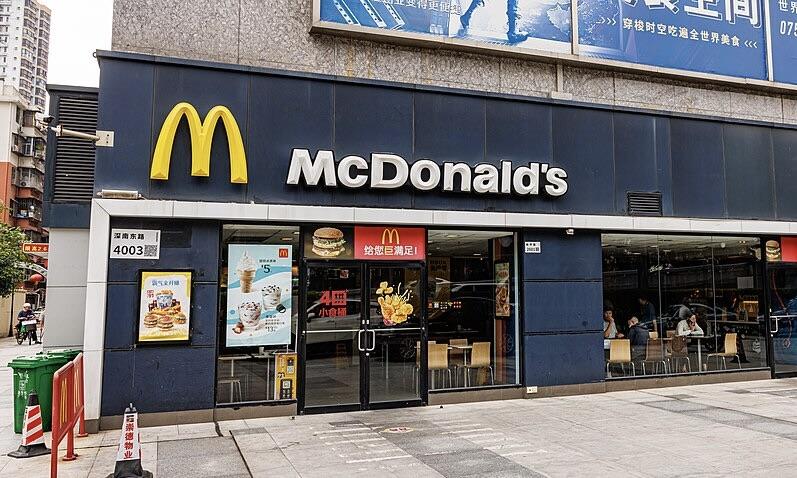McDonald’s is facing significant challenges as President-elect Donald Trump’s proposed tariffs threaten to disrupt supply chains and escalate inflation. The fast-food giant’s plan to introduce a new “McValue” menu in 2025 may encounter obstacles due to rising costs for imported goods and retaliatory measures from foreign trade partners.
Trump, who has often expressed his love for McDonald’s, announced plans to impose an additional 10% tariff on Chinese imports and a 25% levy on goods from Canada and Mexico. While the policies aim to boost domestic manufacturing and employment, economists warn that they could lead to increased consumer prices and supply chain disruptions.
According to Jason Miller, a professor at Michigan State University, the tariffs are expected to drive up the costs of labor and raw materials. "This could strain fast-food chains already grappling with inflation," Miller explained. McDonald’s CEO Chris Kempczinski has previously acknowledged that rising prices are deterring low-income customers, making the situation even more precarious.
Inflation Poses a Threat to McValue Menu
The introduction of McDonald’s “McValue” platform is part of the company’s strategy to attract budget-conscious customers. The platform features deals like the $5 Meal Deal and a “Buy One, Add One for $1” promotion, offering discounts on popular menu items. However, rising costs for labor and supplies, exacerbated by Trump’s tariff plans, could undermine the initiative.
Since 2019, McDonald’s menu prices have increased by 40%, with the cost of a Big Mac rising from $4.39 to $5.29. These price hikes have already impacted the chain’s customer base, particularly among households earning less than $45,000 annually. As tariffs inflate costs further, maintaining affordable menu prices will become increasingly challenging.
Economists also predict that retaliatory tariffs from other nations could exacerbate the situation. For instance, China, a critical market for McDonald’s with nearly 6,000 outlets, may impose countermeasures that hinder the company’s expansion plans. “A trade war would produce no winner,” the Chinese Embassy in Washington stated, warning of the economic repercussions for U.S. companies operating in China.
Public Reaction: Mixed Opinions on McDonald’s Challenges
Social media users have weighed in on the issue, with reactions reflecting divided opinions:
- @FoodieFanatic: “Tariffs will make everything more expensive. Goodbye, cheap fries!”
- @TrumpSupporter89: “Finally, a president who prioritizes American jobs over cheap imports. McDonald’s can handle it!”
- @EconomyWatcher: “Fast food isn’t immune to trade wars. Customers will feel the pain in their wallets.”
- @McDonaldsLover: “If prices go up again, I’m switching to cooking at home. Enough is enough.”
- @TariffRealist: “Inflation and tariffs don’t mix well. Expect fewer customers at the drive-thru.”
- @ChinaPolicyPro: “China’s retaliation could cripple McDonald’s growth overseas. This is a risky gamble.”



 Panama Investigates CK Hutchison’s Port Unit After Court Voids Canal Contracts
Panama Investigates CK Hutchison’s Port Unit After Court Voids Canal Contracts  Lynas Rare Earths Shares Surge 7% After Malaysia Renews Processing Plant Licence for 10 Years
Lynas Rare Earths Shares Surge 7% After Malaysia Renews Processing Plant Licence for 10 Years  FedEx Faces Class Action Lawsuit Over Tariff Refunds After Supreme Court Ruling
FedEx Faces Class Action Lawsuit Over Tariff Refunds After Supreme Court Ruling  Suspected Drone Strike Hits RAF Akrotiri Base in Cyprus, Causing Limited Damage
Suspected Drone Strike Hits RAF Akrotiri Base in Cyprus, Causing Limited Damage  Trump Says U.S. Combat Operations in Iran Will Continue Until Objectives Are Met
Trump Says U.S. Combat Operations in Iran Will Continue Until Objectives Are Met  Greg Abel’s First Berkshire Hathaway Shareholder Letter Signals Continuity, Caution, and Capital Discipline
Greg Abel’s First Berkshire Hathaway Shareholder Letter Signals Continuity, Caution, and Capital Discipline  Trump Says U.S. Attacks on Iran Will Continue, Warns of More American Casualties
Trump Says U.S. Attacks on Iran Will Continue, Warns of More American Casualties  Netflix Declines to Raise Bid for Warner Bros. Discovery Amid Competing Paramount Skydance Offer
Netflix Declines to Raise Bid for Warner Bros. Discovery Amid Competing Paramount Skydance Offer  UK Accepts U.S. Request to Use British Bases for Defensive Strikes on Iranian Missiles
UK Accepts U.S. Request to Use British Bases for Defensive Strikes on Iranian Missiles  Russia Signals Openness to U.S. Security Guarantees for Ukraine at Geneva Peace Talks
Russia Signals Openness to U.S. Security Guarantees for Ukraine at Geneva Peace Talks  Coupang Reports Q4 Loss After Data Breach, Revenue Misses Estimates
Coupang Reports Q4 Loss After Data Breach, Revenue Misses Estimates  Israel Strikes Hezbollah Targets in Lebanon After Missile and Drone Attacks
Israel Strikes Hezbollah Targets in Lebanon After Missile and Drone Attacks  Middle East Airspace Shutdown Disrupts Global Flights After U.S.-Israel Strikes on Iran
Middle East Airspace Shutdown Disrupts Global Flights After U.S.-Israel Strikes on Iran  Zelenskiy Urges Change in Iran After U.S. and Israeli Strikes, Cites Drone Support for Russia
Zelenskiy Urges Change in Iran After U.S. and Israeli Strikes, Cites Drone Support for Russia  Samsung Electronics Stock Poised for $1 Trillion Valuation Amid AI and Memory Boom
Samsung Electronics Stock Poised for $1 Trillion Valuation Amid AI and Memory Boom  HHS Adds New Members to Vaccine Advisory Panel Amid Legal and Market Uncertainty
HHS Adds New Members to Vaccine Advisory Panel Amid Legal and Market Uncertainty  Netanyahu Suggests Iran’s Supreme Leader Khamenei May Have Been Killed in Israeli-U.S. Strikes
Netanyahu Suggests Iran’s Supreme Leader Khamenei May Have Been Killed in Israeli-U.S. Strikes 
































